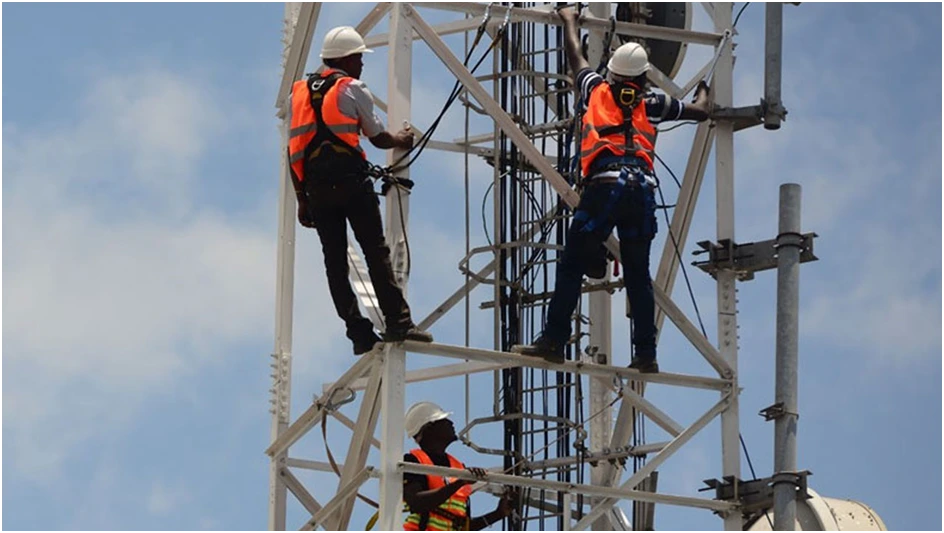This year, foreign direct investments have improved in Nigeria’s telecom sector, which brought in $304 million in the first half of the year.
According to data from the National Bureau of Statistics (NBS), the sector’s capital importation during the first half of 2024 more than twice the $134.75 recorded during the entire year 2023.
This follows years of steady investment declines despite a massive infrastructure gap that will cost billions of dollars to close.
According to NBS data, the sector received a capital inflow of $191.5 million in the first quarter of this year, which is a notable 769% rise over the $22.05 million received in the same period in 2023.
FDIs in the sector was $113.4 million in Q2 2024. This reflects a staggering 339% growth over the $25.81 capital inflow recorded during the same period last year, even though it is less than the inflow from the previous quarter.
No Reason To Celebrate Yet
Stakeholders in the telecom industry, however, are not yet thrilled by the move. They contend that in order to maintain the present trend and undo the losses of previous years, the government still has a lot of work to do on the policy front.
In particular, telecom market specialist Mr. Wale Babalola stated that investments made in the first half of the year are still insufficient to fuel the sector’s present development.
“Yes, it’s good that the sector is doing better than last year and to an extent, the last two years, but that is not enough to bridge the existing infrastructure in the sector.
“Besides, many investors are still watching to see how the government will handle several policy issues still hanging. one of which is tariff regulation. Any country that wants to attract investors should be able to assure returns on investments.
I don’t think that exists right now in the telecom market with the regulator preventing the telecom operators from reviewing their pricing to adjust for inflation and the rising operating costs,” he explained.
According to Mr. Gbolahan, Awonuga, Executive Secretary of the Association of Licensed Telecommunications Companies of Nigeria (ALTON), currency instability remains a significant issue that requires attention in order to stimulate additional investments in the telecom industry.
“Whatever we are seeing now may be a flash in the pan until the industry challenges are addressed. Issues of Right of Way charges are still there, likewise multiple taxation and above all the forex instability that continues to affect the operators’ ability to import equipment,” he added.
Engr. Ikechukwu Nnamani, the CEO of Digital Reality and the immediate past president of the Association of Telecommunications Company of Nigeria (ATCON), expects that the government will create a stable and favourable climate to attract the business.
A steady atmosphere, in his opinion, would indicate that the administration is adhering to its policies. Nnamani also noted that a lot of international investors who are interested in the nation’s telecoms have been deterred by the volatility of the FX market.
Records Of Declining Investment
According to the Nigerian Communications Commission’s (NCC) 2022 telecom industry report, the industry received $399.9 billion in total investment that year.
Compared to the $753 million reported in 2021, this indicates a 47% decrease.
Although the $753 million recorded in 2021 was more than the $417.4 million recorded the year before, the growth was a result of the COVID-19 epidemic in 2020, which caused a sharp decline in economic activity worldwide.
Prior to that, the telecom sector received $942.8 million in capital inflow in 2019, meaning that the 2021 inflow was lower than the pre-COVID-19 year.
Despite the fact that maintaining telecommunications necessitates regular investment in infrastructure for network growth and optimisation, the operators have been reducing their capital expenditure (CAPEX) as a result of the diminishing investment.
The 2022 report, which revealed that the industry’s CAPEX fell by 30% over the year, supported this.
The research claims that operators’ CAPEX expenditures in 2022 totalled N785 billion, up from N1.1 trillion in 2021.
Government Seeks $2 Billion For Telecom Infrastructure
The government is currently leading a nationwide fibre project to close the infrastructure gap and improve broadband access nationwide after realising that investments in the sector have not been arriving as they should.
In order to supplement current connection and provide universal access to the internet, the government launched a Special Purpose Vehicle (SPV) to deliver an extra 90,000km of fibre optic cable.
To make the fibre project a reality, the government has been in discussions with financiers, including the World Bank, according to Dr. Bosun Tijani, Minister of Communications, Innovation, and Digital Economy.
Although the exact timing of the funds is yet unknown, the Minister suggested in a recent media interview that the project could take two to three years to complete.



